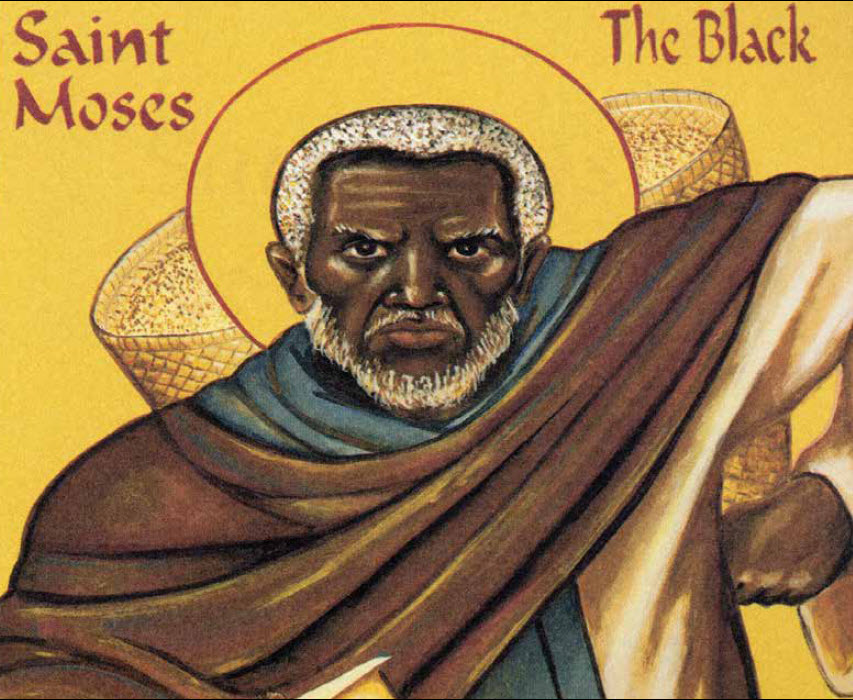St. Moses the Black, also known as Moses the Strong or Moses the Ethiopian, is an often-overlooked figure in religious history and a powerful example of early African contributions to Christianity. Born in the 4th century, Moses began his life as a servant and later became a leader of a notorious gang of bandits. His story took a remarkable turn when he sought refuge in a monastery to escape the authorities. Immersed in monastic life and guided spiritually by the monks, Moses underwent a profound transformation. He renounced his violent past, embraced Christianity, and devoted his life to prayer, repentance, and service. Rising to prominence as a monk and eventually a revered church father, St. Moses stands as a testament to redemption, faith, and the significant role of Africans in the early Christian Church.
As a church father, St. Moses contributed significantly to the teachings and spirituality of the Ethiopian Orthodox Church. His life embodied the power of repentance and redemption, proving that no one is beyond the reach of God’s grace. Moses also became a spiritual guide and mentor to many monks in the Skete Monastery in Egypt, where his wisdom, humility, and deep faith profoundly impacted those around him. His teachings emphasized forgiveness, self-discipline, and the importance of examining one’s heart regularly. His legacy as a spiritual leader continues to influence Christian thought within the Ethiopian Orthodox tradition and throughout the worldwide systems of Orthodoxy.
One of the most famous quotes attributed to St. Moses the Black is, “If the man does not keep himself from all imaginings of evil, he will be consumed by them.” This statement underscores his emphasis on self-discipline and the inner spiritual battle that every believer must undertake. Another powerful teaching of his states, “You fast, but Satan does not eat. You labor fervently, but Satan never sleeps. The only dimension with which you can outperform Satan is by acquiring humility, for Satan has no humility.” These teachings highlight the critical importance of forgiveness, humility, and self-mastery as central pillars of a righteous life. His life and words continue to serve as a guiding light for Christians seeking spiritual growth.
The lessons from St. Moses the Black’s story are timeless and relevant to today’s world. His transformation from a life of violence to one of peace and spiritual fulfillment is a powerful testament to the possibility of change and redemption. His emphasis on forgiveness challenges individuals to overcome grievances, fostering compassion and unity. Furthermore, his teachings on self-reflection and inner discipline serve as a reminder of the importance of personal responsibility in the spiritual life. By studying his life, modern believers can draw inspiration to persevere through struggles and strive toward a life guided by faith, humility, and love.
By: Eric Betts, Assistant Professor | Course Developer, Hampton University School of Religion







